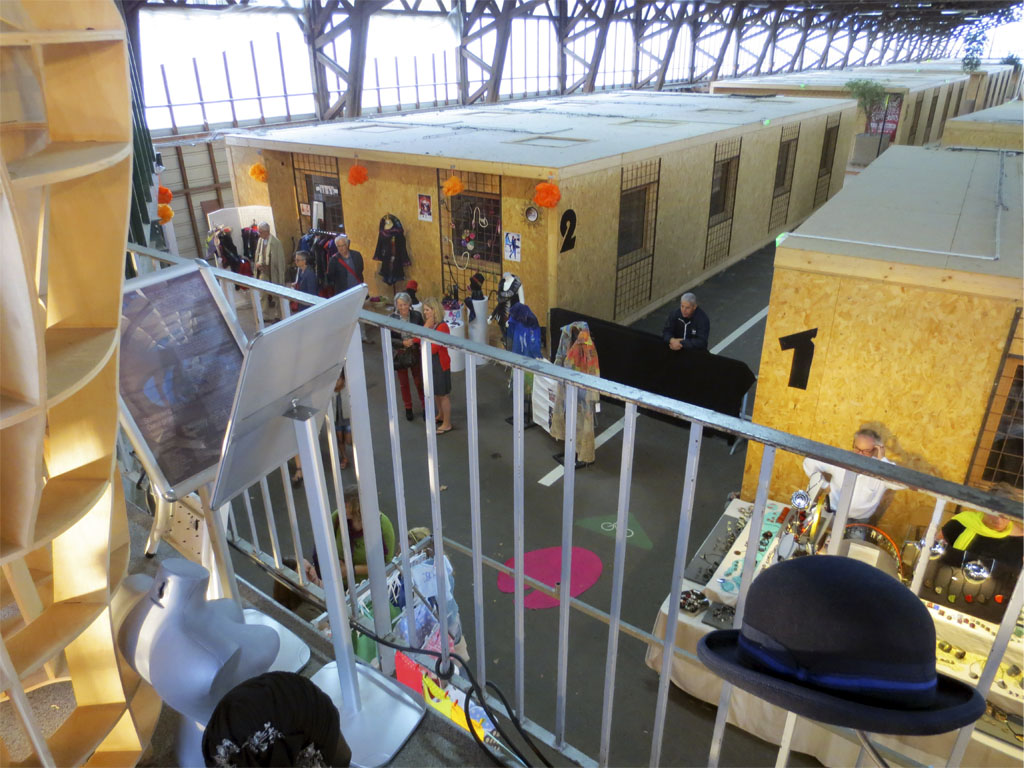21-02-20 // THE GOOD FIGHT – INTERVIEW WITH ANNE MIE DEPUYDT

“Urban software” at the Solilab & Karting Hangars in Nantes
Image credit: Samoa
Bernd Upmeyer spoke with Anne Mie Depuydt, who is a Belgian-born architect and urban planner and the director of the Paris-based office uapS that she founded with Erik Van Daele in 1999. Before opening uapS, Depuydt collaborated with Dominique Perrault between 1988 and 1992 and was project leader at Rem Koolhaas’ Office for Metropolitan Architecture during its pioneering early years between 1992 and 1995, working on the legendary Jussieu Library project in Paris. The conversation took place via telephone on February 21, 2020.
Affordability and Its Limits
Bernd Upmeyer: We got to know about you through a member of our editorial board, who suggested you for the topic of “affordability”, describing you as a ‘total fighter’ keeping developers in check and forcing them to make commitments. What commitments would they need to make to create affordable cities?
Anne Mie Depuydt: If you want to achieve an affordable city, the municipality has to require from developers that they prevent the selling prices of the houses from going higher than the average. It has to determine the price of a property and the developer has to find out how he can propose a reasonable cost-price for the building. But the problem is that if the prices of houses are limited, very often the building cost becomes too low which makes it very difficult for the architect to propose a good quality project. This is actually the problem we have, for example, in Ivry, a commune in the Val-de-Marne department in the southeastern suburbs of Paris, and we know that it exists somehow everywhere in France. Just because today the construction price in France is more or less 20% higher than two years ago. There are actually so many projects going on in the Grand Paris and with the Olympic Games, that it leads to higher cost prices. We are currently working on the Olympic Village, and we are confronted with the fact that the costs of construction are 20 – 30% higher than the normal price. This makes it very difficult for us to build qualitatively good housing projects. And since the building costs – but also land costs – are that high, this impacts immediately on the prices to buy houses too, which are getting higher and higher. So, if you want affordable urbanism, or if you want to fight so that selling prices for houses do not exceed an average of 4,500 euro per square meter, you have a problem, because the developers are having trouble developing projects for that price, which means for a lot of projects that they are not possible and stop. This is happening to some of our other current projects too. That means that cities and their municipalities need to find other ways to achieve affordable houses. They are considering the idea that people should only become the owner of the bricks and mortar but not of the plot.
BU: Do you mean that people become the owner of everything that is build on a lot, but not of the land itself?
AMD: In France, but even in Belgium, discussions are going on if one can become the owner of the building but not of the land, like in Switzerland or London: emphyteutic lease. There you can be the owner of a building for 30 years, 60 years, or 100 years, but you are not the owner of the land or plot. Currently, such a system is being discussed in Paris too and might be applied in several places. Especially in Ivry, which has historically demonstrated strong electoral support for the French Communist Party, this has been discussed, – especially for social housing. With this system a family can own a house for a long time, but if the owner dies and their children are earning more than a fixed income, they are not allowed to keep it…
… the complete interview was published in MONU #32 on the topic of Affordable Urbanism on April 20, 2020.
Title: Democratizing Death
Project: Interview with Anne Mie Depuydt
Date: February 2020
Type: Commissioned interview
Topic: Affordable Urbanism
Organizer: MONU
Status: Published
Publications: MONU #32, P. 36-43
Interviewer: Bernd Upmeyer